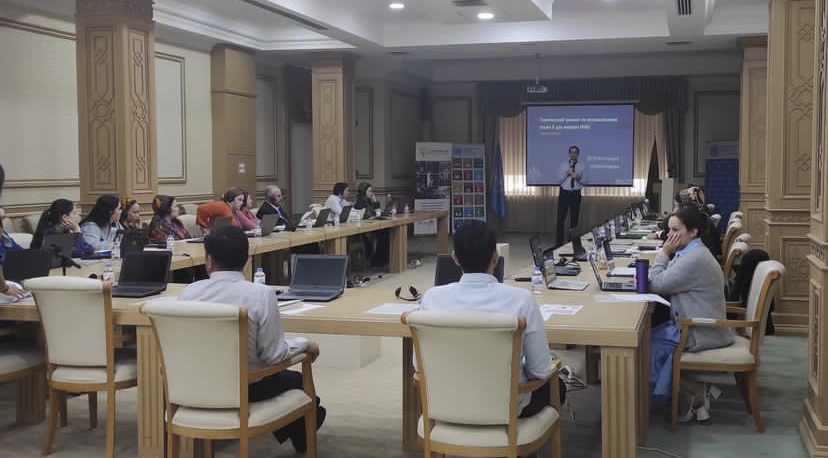On 26-27 April, the United Nations Economic and Social Commission for Asia and the Pacific (ESCAP) with support of Resident Coordinator Office in Turkmenistan successfully conducted Technical R training for LNOB Analysis in Turkmenistan. The two-day training was attended by statisticians and specialists from ministries and national institutions, as well as UN agencies.
As a result, training participants got acquainted with the inner workings of LNOB platform and had hands-on exercises on using the statistical R code that prepares, analyzes and produces evidence on 16 SDG indicators based on the Turkmenistan Multiple Indicator Cluster Survey (MICS) from 2019.
In addition, participants learned how to operationalize the LNOB methodology on indicators other than 16 SDG indicators currently available on the platform. Equipped with this knowledge, participants can then analyze other nationally representative household surveys.
Speaking on the success of the training, Social Affairs Officer Selsah Pasali, said, “ESCAP is committed to supporting its member countries in achieving the SDGs. We are pleased to have conducted this training in Turkmenistan, which will enhance the capacity of national statisticians in the country to conduct LNOB analysis using statistical R code.”
Leaving no one behind (LNOB) is the central, transformative promise of the 2030 Agenda for Sustainable Development and its Sustainable Development Goals (SDG). LNOB means moving beyond assessing average and aggregate progress, towards ensuring progress for all population groups at a disaggregated level. ///UN Turkmenistan, 28 Apr 2023
